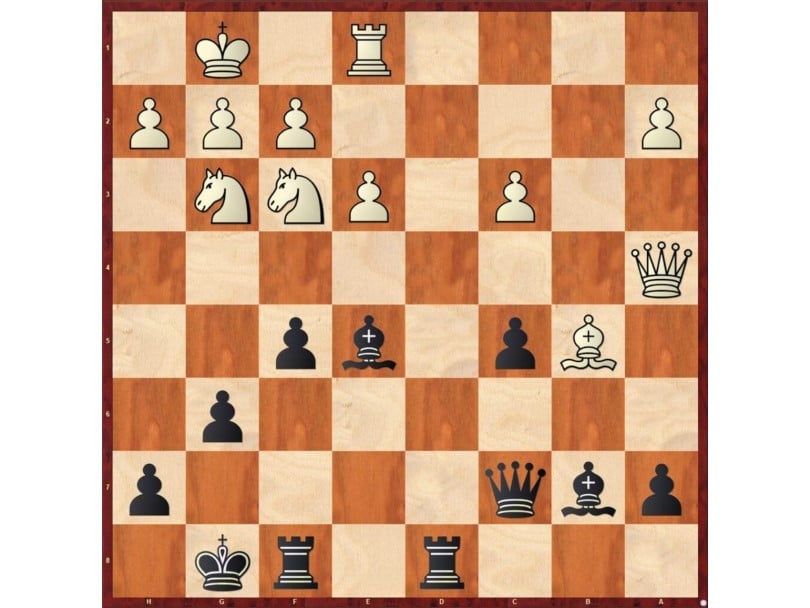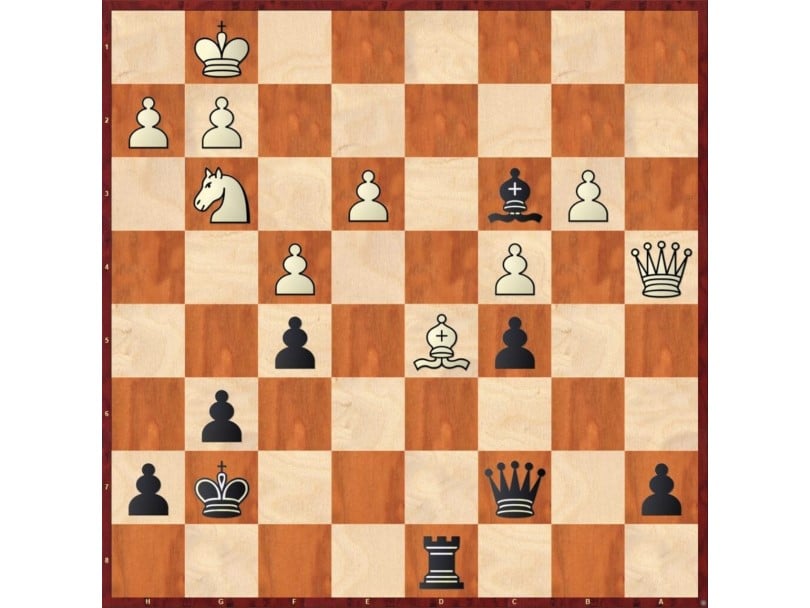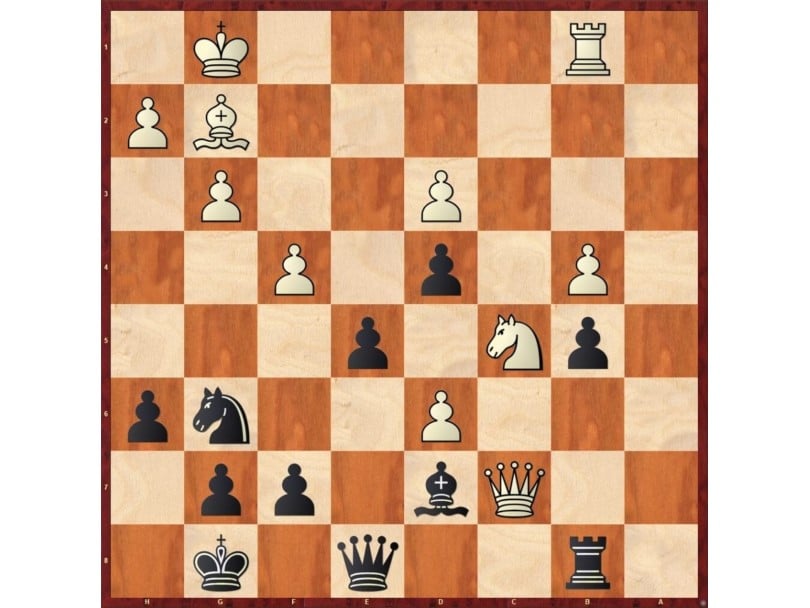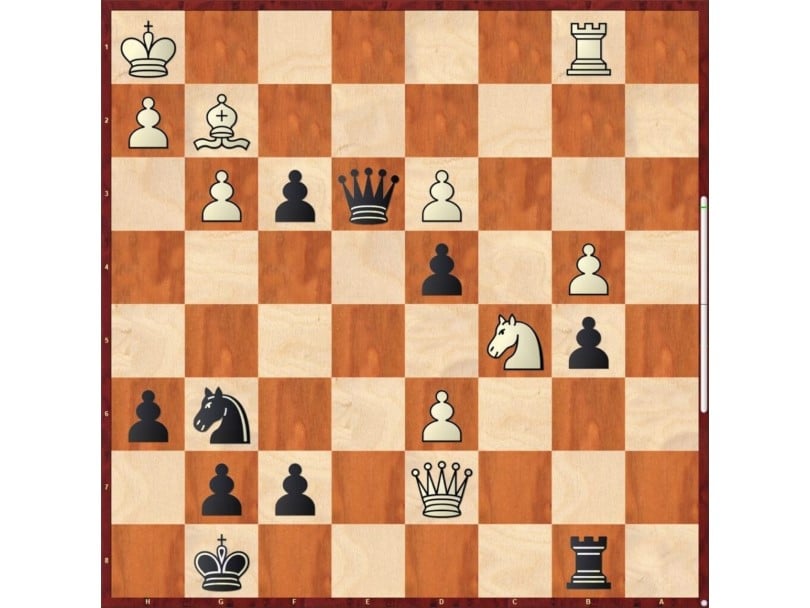We all know that feeling of fucking up a winning position. It truly hurts and it seems to be a never-ending experience.
After reading this article you will convert more of your winning positions!
Getting a winning position is only half the work. Converting the winning advantage is the real test.
It is no surprise that you often hear that “winning a won position is the hardest thing in chess.”
There is something to it. Especially with the help of the Engines, we have discovered new ways of defending seemingly hopeless positions.
In this article, I will guide you through common mistakes when trying to convert a winning position.
Just note that it is absolutely normal to not win some winning positions. The goal is simply to improve your current conversion rate.
Winning Without Calculation Is Practically Impossible
In positions where some decades ago Top Players would have resigned, the game is nearly only starting nowadays! The Stronger your opponent, the more resistance he will be able to put up.
One such incredible fighter is GM Pentala Harikrishna. He is very tenacious when it comes to defending bad positions. He has shown it against the Top of the World many times.
Don’t Do It Like Me Kids…
Last year I messed up the following position against him:

He has just missed a tactical trick and lost an exchange. If I had won the game, everybody would have said: and the rest is technique.
But White managed to hold the position and even got some Chances towards the end. I was extremely upset after the game. I thought everything was winning everywhere.
But after checking the game in detail, I understood that there was only one pretty straightforward win that I missed.
One thing that happens with guys like Harikrishna is that they never give you an easy win.
They make sure that you have to calculate some line precisely in order to win.

In this position, I realized the weakness of e3 was a key point. Indeed 30…Qe7! is the right way.
I saw 31.Nf1 Bd2! (after 32.Nxd2 Qxe3+ I win back the piece with an extra pawn) but suddenly got scared of 32.Qa1+ Kh6 (only move) 33.Qe5?! when I stopped my calculation.
I didn’t like the prospect of a long ending with a white passed pawn on e6 and thought “I’m anyway totally winning, so let’s play something more safe”.
Exactly this vague thinking can cost one many points. The underlying hope is: winning the game without calculating anything. I just tried to make logical moves and hoped for my opponent to collapse.
While this works against clearly inferior opponents, it doesn’t work if your opponent knows how to defend well.
Looking back at it, my instincts were horrible! After 33.Qe5 I simply take Qxe5 34.fxe5 and go on with Bc3 35.e6 Kg7! The King will be perfectly placed on f6, neutralizing the e6 pawn.
Furthermore, Rb8xb3 is practically unstoppable and then the a-pawn is simply queening! My unwillingness to go into slightly complicated lines cost me half a point.
Forcing The Opponent To Calculate
This phenomenon happens quite frequently, here is an example where I saved a hopeless position:

With 7/7 and the tournament victory already secured, I played too arrogantly and ended up in this totally lost position. If I move my Bishop, White at least plays 38.d7 Qd8 39.Qxd8+ Rxd8 40.Bc6 and the game is over.
White will win the exchange with Nb7 and convert probably without problems (note that no Queens are on the Board, so a Harikrishna-like escape is very improbable).
So I decided to try to mess things up with exf4. The Engines laughs at this, but White at least has to calculate some lines. 38.Nxd7 Rc8 seems scary, as the Queen cannot move because of Qe3+ followed by Rc1+ and Black wins!
So it is human that he did not want to calculate this in time trouble. But actually 39.Nf6+! or even 39.Nb6! both win on the spot.
What he did was also fine. 38.Qxd7 Qe3+ 39.Kh1 f3.

This already looks at least a bit threatening. Now on move 40, my opponent needs to decide between:
- Saving the Bishop but allowing Ra8-Ra2. This can be totally winning, but Mating ideas with Ra8-a2 Qf2-Qxh2# are in the air.
- Giving back a piece With 40.Rf1. This stabilizes the position and leads to a clear advantage without risk.
What would you choose in 30 seconds?
Again under time pressure, I can understand his choice of 40.Rf1. Even if the position is still winning, the margin drops a lot. Refusing to go into a critical line also gives the opponent confidence.
The wins kept getting harder for my opponent and I was able to save half a point later on.
Now let us see what happens in the more critical line:
After 40.Bh3 there are several ways for White to win. Ra8 seems the most logical, and now White would have gotten an additional 30 Minutes on the clock.
He has to understand that the Knight belongs to e4 and maybe even f2 to stop all threats. So 41.Rf1 Ra2 42.Ne4 Qe2 43.Nf2 stops all threats and soon the d6-pawn will queen.
Not too hard to see for a player of his level if he only trusts himself enough.
I could give you several more examples with the same scheme:
The Player on the winning side is reluctant to go into complications. He wants to win “by the hand” without having to calculate anything.
This gives the defending player a psychological advantage: he can go for lost, but tricky-looking lines because he understands his opponent wants to win by hand.
What happens is that the wins actually get HARDER not EASIER and thus usually the advantage will disappear at some point.
This is why you should be ready to invest energy and calculate lines even in winning positions.
I do NOT mean that you should complicate the position for the sake of complicating. But once you show your opponent you are not willing to calculate lines anymore, you will give him a second and maybe third life…
Instead of leaning back and feeling great to have achieved a winning position, you should double up your effort to be able to get the full point.
The game is only over when the score sheets have been signed!
Be A Practical Player
Being ready to still strain yourself in winning positions is the basis we are now building on. I have already written about the traits of a practical player in my article on time trouble.
Talking about time trouble: messing up winning positions in time trouble is NORMAL.
It is simply a consequence of getting into time trouble in the first place. The most efficient recipe is not getting into time trouble anymore!
Now you can also use similar strategies of a practical player in order to improve your conversion rate.
Don’t Go For Style Points
It is very important to understand the following:
- Winning fast does not bring you additional points
- Winning beautifully does not bring you additional points
While this sounds like stating the obvious, many people throw points out of the window like this.
Either they want to win quickly and make their job harder than it needs to be. Or they find a beautiful move and can not refrain from playing it, even if practically speaking it is not the best choice.
Search For The Best Move Without Thinking Of The Result
Being a practical player means always focusing on your most important task at hand: playing the best move possible.
And by best move, I do not necessarily mean the move with the highest numeric Engine evaluation.
The best move in a practical sense means the move with the best-expected score!
If you start to overthink when having a winning position you are wasting time and energy over non-essential things.
I know that feeling of having a winning position against a stronger opponent and starting to fantasize about how it will feel to have won the game.
It can go as far as thinking about the following press conference. Or the financial rewards for winning a tournament.
These thoughts are extremely dangerous.
First of all, you waste precious energy on things that do not matter yet. Second, you are also getting more afraid of messing up at the same point.
Why?
Because if you start to fantasize about winning, some part of you believes it will definitely happen. Suddenly you have something to lose.
Thoughts like “what if I mess this up” or “I will hate myself if I don’t win this position” start to pop up in your mind. These thoughts are definitely not helping to focus on your tasks.
Your main goal during a game is simply to find the best move in the current position.
Let the future be the future, and leave the past alone.
Only in a present state of mind can you fully focus on your task. This will drastically increase the chance that you can live the future you so desire to live!
Keep Control Over The Position
One key factor is that you don’t lose control over the position. This means that you should not complicate the position if there is no need to do so.
Now, there is a difference between unnecessarily complicating the position and calculating one line till the end in order to win.
Calculating a complicated-looking line until the end is possible. It simply means not stopping in the middle because of fear.
On the other hand, going into unnecessary complications usually means not being happy with the simple move and complicating the position because of the strong wish to win the game.
Examples could include refusing an endgame with a pawn-up because it is not clear if you can win it. Instead, you keep the Queens on the board without thinking it really is the objectively best choice.
One thing that can help in such cases is asking yourself the following question before you make a move:
- Do I really think this is the best move or am I playing it because of my wish to win?
Forget What Happened Before
A very common way of messing up a winning position is living in the past.
You might miss a resource and the position is not winning anymore. Now this in itself is not great. But there is nothing lost yet. You are simply playing a complex position again.
But this is a very dangerous point of the game. What happens to most of us is that we then live in the past.
Even if the position is objectively not winning anymore, the simple fact that we were winning before still influences our thinking. We might reject drawish-looking moves, because of our wish to win.
Similar psychological pitfalls can happen in situations when we face lower-rated players.
The only solution to the problem is trying to live ONLY IN THE PRESENT. What counts is again only your focus on finding a good next move. If the position is now drawish, then a move repetition might well be the best choice in the position.
Don’t throw away the full point if you can still save half a point. Do not let your past mistakes influence your present decisions.
Don’t Stop Analysing If The Computer Shows “Winning”
The last point is not something you can do during the game. But it still is very important.
Make it a habit to analyze games until the very end. Sadly in most books, there will always be the phrase “and the rest is a technique”.
This gives you the impression that this phase of the game is super easy. But let me tell you one thing:
If you never train to convert winning positions, it will be very hard during the game!
Just imagine professional football players saying: “scoring a penalty is simply technique”. Thus they are never really training it. Most likely this will end in disaster.
Even if it is relatively easy to score a penalty, it still needs to be trained!
If you have trouble with your excessive Engine usage, then read this article.
Seeing +4 on the screen and thinking “ah that is so easy” is as far as it gets from a practical game! Don’t set yourself up for heartbreaks just because you are too lazy to use your own head in training!
Summary To Win A Winning Position
Not converting a winning position usually comes down to psychological factors. The simple fact of having a winning position can lead you to make irrational decisions.
Whatever takes your focus away from finding the next best move is a huge problem.
The main points that prevent you from converting a winning position are:
- Being reluctant to calculate lines (trying to win by the hand)
- Going for quick wins or style points
- Fantasizing about the consequences of a win before the game is over
- Losing control of the position “to make sure you win 100%”
- Living in the past
- Never training to convert winning positions
If you have the strength to get a winning position, nothing speaks against the possibility that you truly win the position.
The only thing that can stand in your way is your own mind.
Try to focus on what matters and not get distracted by all the tempting thoughts. If you manage to do so, I am sure you will convert more winning positions!
Sincerely,
Noël
P.S.: If you liked this article, you would love my E-Book, The Art of Chess Training. Download it here for Free.